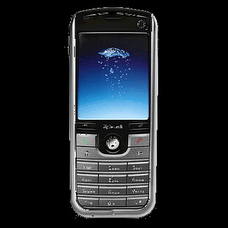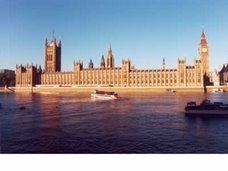Once again the evening news is dominated by the Iranian “hostage” crisis. Unfortunately, those of us who are old enough will recall the troubled post Shah era of Iran’s history, with the American hostage crisis of President Carter’s tenure being particularly poignant at this time. Whatever your views on Britain’s involvement in the Middle East, what is clear is that the release of the British naval personnel must come from diplomatic endeavours. To contemplate any other form of action would only serve to ignite the touch paper that currently smoulders in the region. For once the U.S.A. remains particularly quiet on this issue, its stance probably dominated by the fact that a number of Iranian “diplomatic” officials are currently enjoying American hospitality for “straying” too far into Iraqi territory. I suspect that their acquiesce has further considerations; Bush is well aware that any military action directed at this stage will pull in the Syrians at the least, and a plethora of other minor but equally motivated, Arab nations. Now Dudya may be a fool, but his military planners are not; whilst conflict may be their ultimate aim, they know that at the moment the time is not right. Never then, has Britain’s diplomatic resolve been more paramount; we need to find a solution before the U.S.A. decides the time is right. A potential way forward may come from a historical precedent. The Cuban crisis of 1962 pushed the world to the brink of nuclear catastrophe. Thankfully, both Khrushchev and Kennedy were fully aware of this and the notion of “mutual assured destruction” forced them to seek a diplomatic solution acceptable to both. Each party issued letters which were made public, whilst the actual agreement was kept within diplomatic constraints.
The intricacies of the crisis are different, but essence of the Cuban scenario is transferable; a form of words must be arrived at to allow both sides to emerge with their integrity intact. For Iran, a statement that it will not tolerate any incursions into its territorial waters, but without reference to Britain. For this country’s diplomatic service, the wording should centre on the fact that as a nation we would never knowingly enter another’s territorial waters, but without reference to Iran. As a solution it allows both sides to emerge with their national prestige intact, with Britain admitting no transgression, and Iran with a clear message to any future transgressors.
Some years ago historians and political scientists devised the concept of the “12 o’clock nuclear timescale”, where on an imaginary clock 12 p.m. was a nuclear war, the clocks hands moving closer or further away from this time relative to prevailing world circumstances. The Cuban Missile Crisis placed the clock at 11.59 p.m, a minute from catastrophe. Clearly, we are not operating on this timescale in this instance, but the potential for escalation dominates. The U.S.A. considers Iran a legitimate and almost inevitable target, Israel with all its issues looms in the background and Britain, despite its jaundiced view of itself as a world player, has a tendency to become involved in situations which clearly place it well out of its depth. If I had to resurrect the “12 o’clock” scenario, I would place the world at 11.15 p.m, plenty of time for change but with the clock hands moving in the wrong direction.





































1 comment:
Jimmy Carter's agony was immense, hoping that the American hostages would be released on the afternoon of his last day as American President. Iran released them after midnight (Washington time) on the first day of Reagan's presidency.
I hope that Iran isn't waiting for Gordon Brown to take over!
Post a Comment